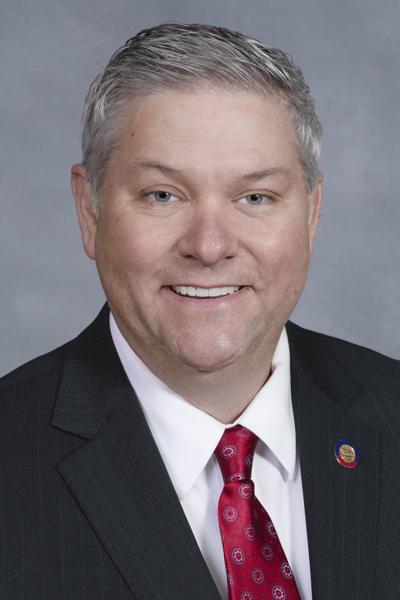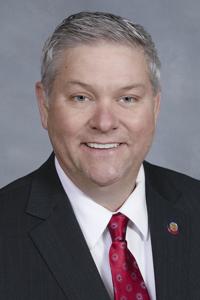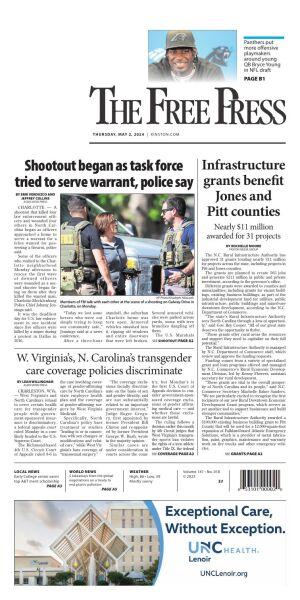This budget exemplifies fiscal conservatism while delivering significant benefits to our community. Let’s dig into its key elements.
Fiscal Responsibility:
One of the standout achievements of this budget is its commitment to growing the Rainy-Day fund balance by $125 million, bringing it to just under $5 billion in total. This move ensures that we are financially prepared for unforeseen challenges while demonstrating our dedication to fiscal responsibility. A robust Rainy-Day fund is the cornerstone of a secure and stable economy.
Tax Relief for Families and Businesses:
In the spirit of responsible governance, this budget cuts taxes by a substantial $1.2 billion for North Carolina families and businesses over the next two years. It accelerates the scheduled personal income tax cuts, dropping the rate to 4.5% in 2024 and potentially as low as 2.49% if certain revenue triggers are met. These tax cuts will stimulate economic growth, attract new businesses, and put money back into the hands of hardworking North Carolinians.
Investing in Education:
Education is the cornerstone of prosperous communities, and this budget recognizes its paramount importance by appropriating $17.3 billion for education in FY 2023-24, a 6.1% increase, and $17.9 billion in FY 2024-25, a 9.5% increase. Teachers will receive an average pay raise of 7% over the biennium, with average teacher pay reaching over $60,000 by 2024-25 — on par with the state median household income. Additionally, starting teacher pay will increase by 11% to $41,000 in FY 2024-25. We are also expanding the Opportunity Scholarship Program, providing parents and students with greater educational choices. Complementing this funding, the North Carolina Department of Instruction will establish a Twelfth-Grade Transition Program to prepare high school students to connect with colleges, the military, and the workforce.
Workforce Development:
Along with these critical investments in education, we’ve allocated $133 million to the NC Community College System for Continuing Education and Workforce Development. Under the Short-Term Workforce Development Grant Program, the State Board of Community Colleges will award up to $750 to students pursuing short-term, noncredit State and industry workforce credentials. Programs such as architecture and construction, information technology, electrical line worker, health sciences, and manufacturing will qualify — providing our state with the skilled workforce it needs to continue driving our economy forward.
Infrastructure and Capital Investment:
Our budget invests significantly in the infrastructure that is essential for our region’s growth and prosperity, appropriating $2 billion for over 200 water and wastewater projects, $700 million for highway maintenance programs, and $5 billion for the State Capital and Infrastructure Fund, supporting vital projects such as the ECU Brody School of Medicine expansion and a new business school at N.C. State University. These investments lay the foundation for economic development and job creation in our region.
Examples that underscore a strong commitment to bolstering critical infrastructure necessary for our area’s advancement and economic well-being include over $10 million for Jones County to upgrade water treatment facilities and substantial contributions to Snow Hill and Hookerton for wastewater and infrastructure enhancements. Acknowledging the importance of flood mitigation efforts in Eastern NC, the budget allocates over $6 million to the Adkin Branch Mitigation Project in Kinston, and an additional $100,000 for a crucial flood study in Jones County. These substantial investments demonstrate a robust commitment to fostering a resilient and prosperous regional infrastructure.
Regional Connectivity, Military Readiness, & Job Creation:
Initially established as the Kinston Airport, the North Carolina Global TransPark has evolved into a regional center for the aviation sector. The recently passed budget allocates substantial funds to bolster the growth and economic development of the TransPark. Specifically, the budget designates $350 million for the purpose of planning and constructing an aircraft Maintenance Repair and Overhaul facility which will serve the needs of the United States Armed Forces and create high-paying job opportunities in our community.
Healthcare and Community Support:
To create a healthier North Carolina, our budget allocates $1.6 billion in nonrecurring federal funds to expand Medicaid, ensuring access to healthcare for more North Carolinians. We’re investing in behavioral health, providing funds for a new UNC Children’s Behavioral Health Hospital, and increasing behavioral health provider rates. Additionally, we are supporting childcare services, personal care workers, and pregnancy care centers to further strengthen our communities. Collaboration between the UNC School of Medicine and the ECU Brody School of Medicine leads to a new rural health initiative, NC Care, opening clinics in underserved rural areas to enhance access to care.
Streamlining Government and Reducing Red Tape:
This budget includes measures to streamline government processes and reduce red tape, making it easier for businesses to operate and grow in our state. We are ensuring the security and fairness in our election systems and supporting environmental permitting efficiency.
This budget underscores our commitment to responsible governance, fiscal conservatism, and the well-being of our community. It reflects our dedication to empowering individuals, strengthening our economy, and investing in the future of Eastern North Carolina. This state budget not only benefits our constituents today but also lays the foundation for a prosperous tomorrow. Together, we are building a brighter future for Eastern North Carolina, and I am honored to be a part of the process.







